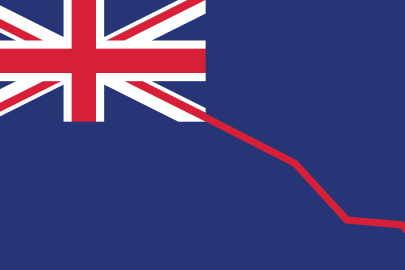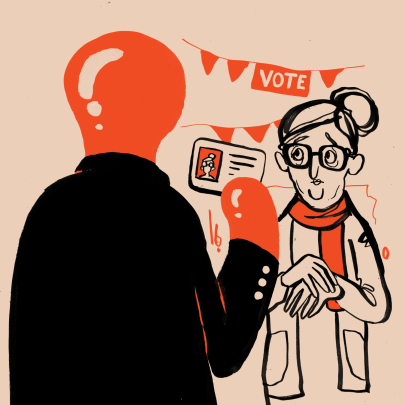Jul 20, 2015 Politics
Lorde. She’s profoundly influential, right? World-famous music, 12 million followers on social media, and famously she makes her own decisions about everything. She’s the antithesis of a manufactured pop star, and a certifiable hero, especially to young women.
But influence is complicated. What would Lorde be without producer Joel Little, former manager Scott Maclachlan, Amber D who shaped her look and Adam Holt at Universal whose strategy took her to the world? Or her mum and dad, for that matter? And despite her awesomeness, she hasn’t sold as many records in New Zealand as Sol3 Mio. You couldn’t say Sol3 Mio have changed the world the way Lorde has, but obviously they have put a little bit of pleasure into more local homes.
What is influence? We’ve treated it as the practice of making things happen. Chief Justice Sian Elias has less influence than you might think, because on the Supreme Court she is quite often in a minority. The judge who writes the most majority opinions is her deputy, Willy Young. (In family law, in case you’re fretting now that Anne Hinton has risen to the bench, the go-to divorce lawyers are now Lady Deborah Chambers, better known as Deborah Hollings, and Simon Jefferson.)
In business, Theo Spierings runs the biggest company, Fonterra, but his influence in the city is small. And John Key, despite his immense popularity, is not top of the list. Why not?
For one thing, the few projects he has put his name to as prime minister have come to very little. New Zealand is not a financial services hub and we do not even have a connected up series of bikeways. For another, Key by his own admission does little except what the polls tell him he should do. That’s the opposite of influential.
But he has controlled a fractious cabinet superbly well, and he did propose and see through the managed sell-down of state-owned enterprises — and that provided the sharemarket with some rare non-property-related activity.
And if the tea leaves are right, as his loyal lieutenant Steven Joyce likes to say, he will stay on until the next election. Of course he will — who else have they got? If he wins, he’ll resign a year or so later. If he doesn’t win, he’ll be gone overnight.
As for super-minister Joyce, he’s still the darling of the business world but has become surprisingly tone deaf to politics. The Northland by-election result was a shock all round in the National Party. Joyce treats public transport not as a means to economic development but merely a matter of moving poor people around on trains. As for Auckland Council, they’re an out-of-control bunch of money-grabbing cowboy engineers.
Is that fair? Mayor Len Brown likes to say the common city “has brought the cream to the surface”, and in many ways he’s right: the city is run by some very able public servants. Stephen Town, the council CEO, has most groups working more closely together than they used to. John Dalzell has done so well running Waterfront Auckland he’s now tipped to head the new Development Auckland. He, and it, will be a game-changer. Ludo Campbell-Reid, although not the head planner, tirelessly champions the changing face of the inner city.
David Warburton leads Auckland Transport with a sure hand, although like most transport planners he thinks too much of motorways and not enough about how to get people off them. Brett O’Riley has transformed the events agency ATEED from a morass of ineffectiveness (remember the ugly opening of the Rugby World Cup?) into an impressively high-functioning champion of city life.
Tony Gibson has turned the container port into the most efficient in Australasia and in the process reduced their demand for more reclaimed land from 22.6 hectares to just three. He hasn’t gone far enough, but you can’t deny his skill, or the healthy dividend the port posts to the council.
Where the cream has not risen is round the council table itself — although, here’s a bit of shock news — that is not true of Len Brown himself. Wellington doesn’t want to talk to him because they don’t want to hear what he has to say. But inside the council Brown is still an extremely smart operator. Evidence? He just pushed through his new long-term budget on a vote of 15-7. Rates will be higher than most people want but far lower than they might have been. There’s a reasonably bold plan to address the city’s looming transport crisis (think of it in this simple way: Symonds St is supposed to take 80 buses an hour, max, but it’s well on the way to 130, which is simply not sustainable).
Brown persuaded his council to be brave and far-sighted. Who else, anywhere in the country, can stand by such a claim? His influential lieutenants have been deputy mayor Penny Hulse and finance committee chair Penny Webster.
And yet Brown will not be mayor after the next election. No one wants him and Phil Goff waits in the wings: he’s got a war chest and a degree of cross-party support, and just watch how Labour are using him as spokesperson on Auckland issues. Len Brown will be remembered well by history, but he’s been forgotten already by voters and his former backers. His coffers are empty.
Other politicians of influence? Jacinda Ardern, who is practically worshipped among the urban young. Alan Gibbs, the financial fingers controlling the David Seymour Act Party glove puppet. Winston Peters, expected to hold the balance of power after 2017. Bob Harvey, soon to retire as chair of Waterfront Auckland and be appointed Ambassador for Auckland. He’s in big with Asian investors and his new job will make the most of that.
The commentators who get noticed most are Bernard Orsman at the Herald, who can make and break politicians and issues; and Matthew Hooton at the NBR and this magazine. He’s Auckland’s most well-informed and entertaining political writer, and his iPredict political betting operation steers a lot of conversations.
Among the lobbyists, Sudhvir Singh at Generation Zero is the boldest voice of the millennial generation; architect Julie Stout at Urban Auckland is a tough foe for Tony Gibson (and Len Brown) over the port; Patrick Reynolds has become so influential in transport circles, he gets invited to brief the ministry. And Parnell’s Carrick Graham leads a renaissance in that suburb and has the ear of many in government.
Not so influential really
Paula Bennett: The “frontrunner” to replace John Key has no important support base in cabinet or her party.
Lester Levy: Ten years ago he was a high-flying modern-thinker intent on revolutionising our bureaucracies. He chairs three public boards now, and does well with all, but he seems to have given up campaigning for hearts and minds.
Nikki Kaye: She’s always been a champion for Auckland, to her immense credit, but that has kept her at arm’s length from cabinet’s inner circle.
Michael Barnett: He’s a genuinely nice guy, and he understands the city well. But if he was as influential as he should be, he’d have had more sway with Steven Joyce.
Influential Aucklanders: The Metro Top 50
- Stephen Tindall, business
- Lorde, music
- Nigel Morrison, business
- John Key, politics
- Steven Joyce, politics
- Stephen Town, council
- Peter Cooper, development
- Joan Withers, business
- Lynda Reid, education
- Al Brown, food
- Jane Hastings, media
- Paul Majurey, business
- Martin Snedden, events
- John Dalzell, council
- Mike Hosking, media
- Julie Christie, media
- Dayle Mace, philanthropy
- Michael Stiassny, business
- Shayne Currie, media
- Peter Thompson, real estate
- Rachel Glucina, media
- Libby Weaver, health
- David Warburton, council
- Ngarimu Blair, Ngati Whatua
- Karen Walker & Mikhail Gherman, fashion
- Anne Salmond, anthropology
- Adrian Orr, fund manager
- Culum Manson, development
- Mike Stanley, sports
- Stefan Sinclair, tattooist
- Len Brown, politics
- Adam Holt, music
- Jenny Gibbs, philanthropy,
- Stuart McCutcheon, education
- Jacinda Ardern, politics
- Lydia Ko, sport
- Phil Goff, politics
- Kelly Martin, media
- Deborah Pead, PR
- Phillip Mills, health
- Millie Elder-Holmes, blogger
- Patrick Dunn, religion
- Ludo Campbell-Reid, council
- Sudhvir Singh, activist
- Sido Kitchin, media
- Winston Peters, politics
- Penny Hulse, politics
- Annabel Langbein, food
- Mike Treen, unionist
- Steve Donohue, retail





